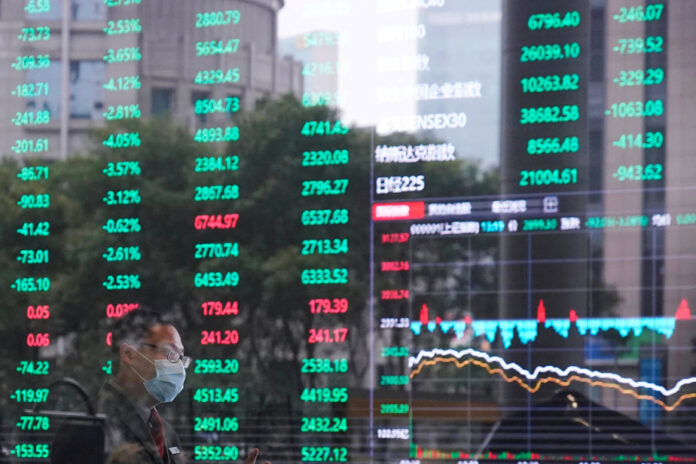(New York) Global stock markets ended mostly down on Friday and bond yields rose after the release of the U.S. producer price index for July, which rose more than expected.
In Europe, Paris ended down 1.26%, Frankfurt 1.03% and Milan 1.05%.
London fell 1.24% as its session was also marked by the 0.2% rise in the UK’s gross domestic product (GDP) in the second quarter compared to the first, which supports expectations of a further increase in British central bank (BoE) rate in September.
Wall Street finished undecided: the S
The Toronto Stock Exchange was up midday on Friday, helped by strength in energy and telecommunications stocks, and despite weakness in technology and metals.
Investors reacted to the publication of the producer price index (PPI) in the United States in July “which is seen as the last important figure for the month of August”, comments Guillaume Chaloin, director of equity management by Delubac AM.
This indicator, which reflects “inflation seen from the business side”, rose 0.3% month on month in July, while analysts expected 0.2% and prices had been flat in the month. before, details the analyst.
The fears are “essentially about the wage burden, rising wages” contributing to the inflationary spiral that “central banks are afraid of, because it is difficult to break”, explains Mr. Chaloin.
It is also “important to note that the components of the PPI are used in the calculation of consumer price inflation (CPI),” note analysts at Berenberg Capital Markets.
The day before, the CPI index in the United States for July, the main measure of inflation, came out a little below analysts’ forecasts, which was not enough to completely allay their fears of a possible further rise in interest rates from the US central bank, the Fed, later in the year.
“The market likes certainty, but there’s a lot of uncertainty now about inflation,” said Adam Sarhan of 50 Park Investments.
San Francisco Fed President Mary Daly also told Yahoo! Finance that “it wasn’t a single number that declared” the Fed’s “victory” over inflation. “There is still work to do and the Fed is fully committed to resolutely bringing inflation back to its 2% target,” she added.
In the bond market, yields on 10-year Treasury bills stood at 4.15% around 4:30 p.m. EST, down from 4.10% the previous day.
In Europe, the yield on the German 10-year government bond stood at 2.62%, down from 2.53%.
Driven by the rise in rates on the bond market, the technology sector ended down in Europe and the United States.
In New York, Meta dropped 1.34%, Nvidia -3.62% and Tesla -1.10%.
In Europe, Teleperformance fell by 4.16% and STMicroelectronics by 3.00% in Paris. Infineon lost 3.14% in Frankfurt. ASML dropped 3.11% in Amsterdam.
Swiss banking giant UBS gained more than 4.5% in Zurich after announcing that it was abandoning state and central bank support measures to facilitate the takeover of Credit Suisse, saying they were no longer necessary.
Oil prices rose for their seventh week in a row, after the International Energy Agency (IEA) released new forecasts for global crude demand growth.
A barrel of Brent North Sea oil, for October delivery, gained 0.47% to $86.81.
Its US equivalent, a barrel of West Texas Intermediate (WTI), for September delivery, gained 0.44% to $83.19.
The Dutch TTF futures contract, considered the European benchmark for natural gas, fell 3.12% to 35.90 euros per megawatt hour (MWh).
On the currency side, the dollar gained 0.29% against the euro, to 1.0949 dollars for one euro, at 4:45 p.m. (Eastern time).















